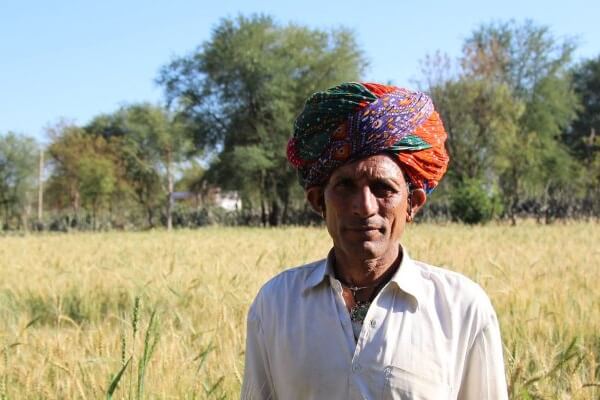How JIVA is Building Community Resiliency and Ensuring Staff Safety
Responding to the growing spread of the virus in India, the Joint Initiative for Village Advancement (JIVA), implemented by Pyxera Global in partnership with the John Deere Foundation, is working to strike a balance between the continued support to small holder farming communities and the safety of all program staff and community members. Since JIVA’s launch in 2013, the success of this community-driven development program in supporting the farmers of today and tomorrow has been built on a foundation of trust and person-to-person interaction. In this challenging time, the JIVA team in Rajasthan, India is rapidly learning to adapt and reinvent its community-driven approach.
As the reality of COVID-19’s imminent arrival became clear, the team underwent a three-phased evolution in its adaptive journey, starting with placing a pause of all physical, community-facing activities, followed by leveraging the community apparatus to prevent potential spread, and now devising ways to reinvent its modus operandi.
PAUSE
As the concern of COVID-19 spreading in India grew, the JIVA team responded proactively by pausing all village-level activities. This involved halting the operation of 27 Education Resource Centers (ERCs), where normally 854 students gather to receive educational support from locally recruited ERC teachers. The team also paused regular, in-person farm visits by community-based agriculture volunteers. Simultaneously, the team held a discussion during which staff shared their concerns of working from the office, which led to developing a contingency plan for supporting the communities while protecting the staff in this new context.
PREVENT
On March 20, while calling farmers about the pause in field visits, the JIVA team discovered that only one out of six farmers had knowledge about the coronavirus. This revealed both an extreme vulnerability of the communities and a strong potential for JIVA’s community apparatus to build community resiliency by promoting preventative behaviors. The 22 agriculture volunteers, who have garnered trust from the community while advocating agricultural best practices, picked up their phones and began disseminating information about the coronavirus and convincing farmers to adopt practices such as regular hand-washing and social distancing. The 36 ERC teachers are also now tasked with convincing parents of their ERC students on these practices. In addition, the team worked closely with village leaders to ensure community members acknowledge the severity of the threat.
With an increase in migrants returning to the JIVA villages, the team also instructed community members to share this information with newcomers and others in their networks, multiplying their reach through the tele-social network. After a positive case was reported in a neighboring district, the response from local agencies has drastically increased, with more preventative activities, provision of food and financial packages for vulnerable households, and enforcement of self-quarantine for the migrant community members returning from urban areas. While the community members continue to call JIVA staff and volunteers with COVID-related fears and questions, the team has been providing not only the basic information on COVID-19, but also phone numbers of government help desks to obtain consultation and further information.
RE-INVENT
Acknowledging the need to adapt to the changing circumstances, the team has reinvented the working modalities and readjusted functional priorities, including:
- Providing remote support to the communities. The agriculture team members are fully available and are providing counseling over the phone so that farmers receive crucial information related to weather, harvesting spring season crops, and preparing for planting summer crops. Some farmers are sending photographs of their plants from their smartphones while others are making video calls using WhatsApp to seek the JIVA team’s advice on pest and disease control measures. The education team members are also coordinating with parents to ensure children have a proper learning environment at home.
- Adapting JIVA’s strategic approach. The team will also take the time to review its current strategies, assess the opportunities for improving performance, and revise the annual activities plan in the new context of COVID-19. With the possibility of an extended period of interruption to business-as-usual, the team is working to continuously iterate its contingency plans.
- Developing knowledge and learning materials. With a reduction in direct implementation-related activities, the team now has more time to document their experiences, learnings, develop case-studies, and conduct research. As such, each team member is working on preparing various knowledge and learning materials, all from the comfort of their homes. While most staff have been issued laptops, those who have not, particularly coordinators and volunteers, are using their phones to take pictures of their hand-written notes and sharing via WhatsApp for cross-learning and further refinement.
- “Sharpening the saw.” The team members are also being encouraged to take free online courses, review relevant literature, and read international development-related books, which they would not normally have the time to undertake. Periodically, the team plans to conduct virtual cross-learning meetings, during which the reading notes and learnings will be shared with each other.
Despite the interruption to business-as-usual, Pyxera Global is committed to continuously reinventing its approaches that empower the team and communities to respond safely and proactively.


